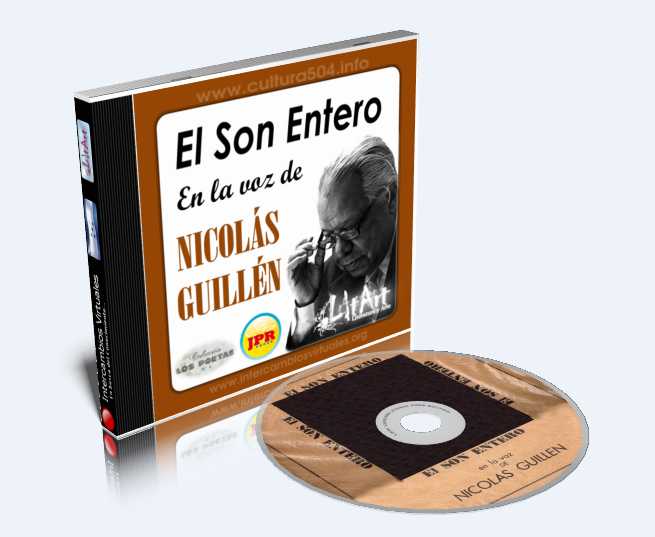4.1.1.14.6 The poetic text “El Son entero”, 1947, by Nicolás Guillén

In this collection of poems, a collection of her previous poetic work since 1930 and a bearer of new aesthetic achievements, Guillén’s expressive maturity is manifested, the definitive “coloration” of her poetics as a mestiza, in a physical and spiritual sense, given the high degree of transculturation, in the sense that the ajiaco had already curdled in its one and multiple flavor.
One of the key texts in the collection is “Son número 6” (Son numero 6)—titled thus due to its original position in the text, later modified but not its title—in which he alludes to the fusion of the descendants of different African ethnic groups, very popular in the language (“what’s mine is yours, what’s yours is mine…”) but at the same time of profound aesthetic significance, employing paradoxes that convey the sense of a rich but subjugated culture (joyful Yoruba tears). One of the central stanzas is transcribed in terms of rhythm and message:
“I am Yoruba,
I go singing,
I’m crying,
and when I am not Yoruba,
I am Congo, Mandinga, Carabalí…”
From this integration, the need to expand the echo of his minstrel’s voice like a shock wave is also established, so that the tears and joy of an entire people can fit into his poetry. The criollismo of the verses, with its integration of black, white, and mixed-race people, constitutes an admirable identity synthesis, but not a static one; rather, it eludes a process of profound future projections of realizable utopias, all within lyrical molds of the highest quality.
Part of his projection into the future is present in “A Son for Antillean Children,” a poem that has several levels of reading, one of which is a pure childlike flavor that Cuban children of all subsequent times have savored: “Across the Caribbean Sea / a paper boat sails: / the boat goes and goes, / without a helmsman. (….) There goes the black woman / next to the Spaniard; / the boat goes and goes / with them both.”
The text, alluding to the symbiotic Cuban culture, builds upon it an approach to the American culture; through the symbol of the ship, which allows disparate American regions to be brought together, more as peoples than as countries; this conception is a heir to the vision of Martí and other heroes regarding Latin American unity and anticipates demonstrations of solidarity that occurred decades later.
For its part, “Guitar” affirms Nicolás Guillén’s aesthetic creed, marked by diverse currents but above all originating from and dedicated to the people, from whom all true art is born. In this sense, the term “Son entero,” used in this poem and which gives the collection its title, alludes to the very embodiment of the Cuban’s integral life, without twists or false artifices:
“Lying in the early morning,
the firm guitar waits:
deep wooden voice
desperate.
Her clamorous waist
in which the people sigh,
pregnant with sound, stretches
the meat is tough.
(…)
The sound of mature desire,
your whole sound;
that of the open future,
your whole sound;
the one with his foot on the wall,
you are whole..
Take it yourself, guitarist,
clean the alcohol from his mouth,
and on that guitar, he plays
you are whole.”








